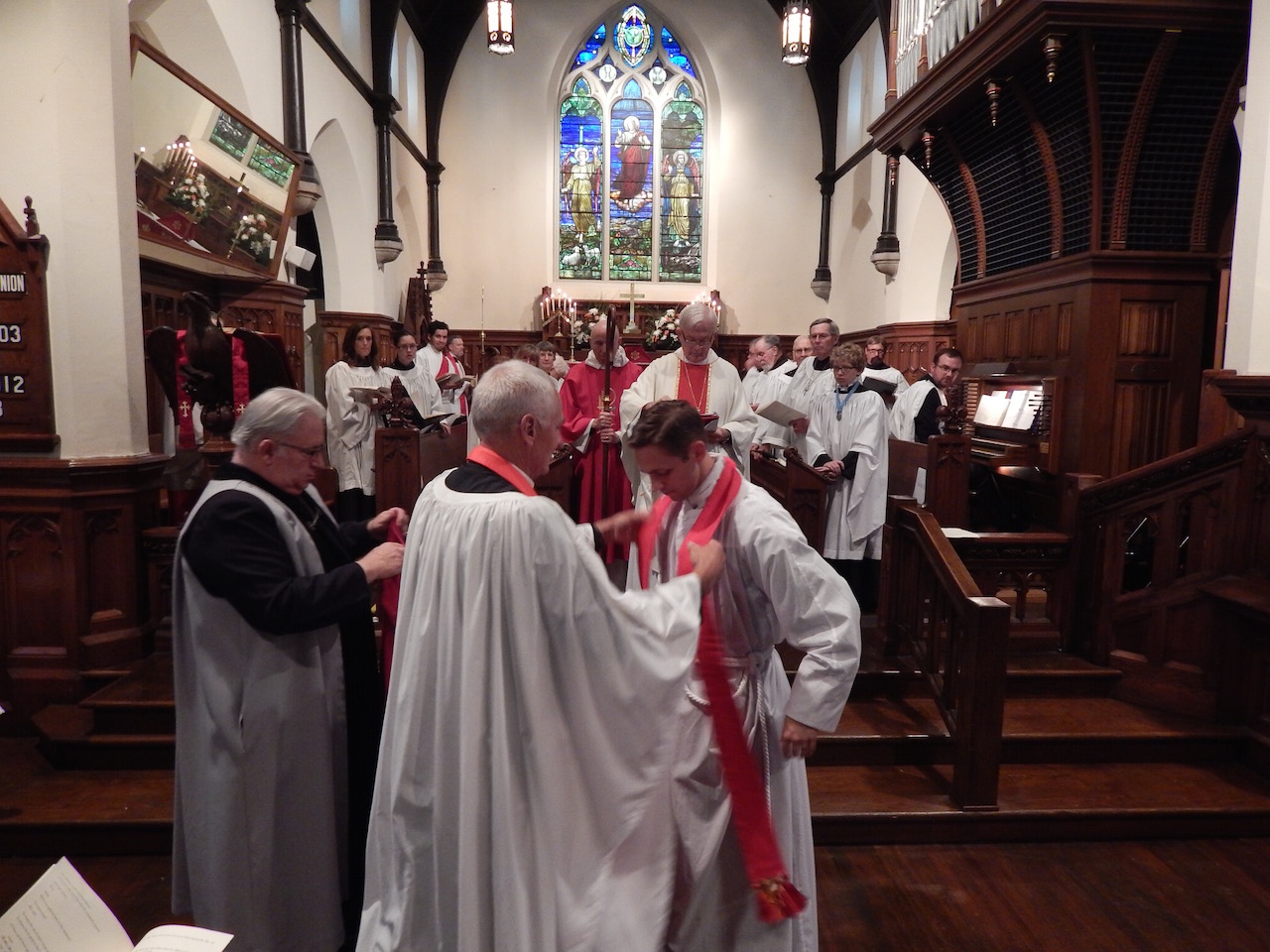
When it comes to selecting clergy, it helps to refer to the Owner’s Manual, otherwise known as the Bible. The early Church faced the same problems modern churches do when it came to finding suitable leadership. Paul addresses the situation to Titus in the first chapter of his letter to him, verses 5-9. What he tells his young charge is that the person should be a male, married to one woman, and morally blameless. This excludes many who fancy themselves Christian leaders today, but according to the Bible, this is the way it is. Thus, you are looking for a male, a heterosexual, and somebody who’s not divorced. Why does this surprise us? Is it wrong to ask that those elevated to Christian leadership might be successful and lead integrated lives? We’re not talking about membership, but leadership; a very different thing.
Those who view the Bible as dated, culturally bound and subject to revision run the risk of excluding God from their calculations, and finding that he is no longer part of their ministry. Is this not in fact what has happened to the mainline Protestant denominations, one and all? They have dumbed down the Gospel to the point that the Church resembles the world, and people have concluded that if Christians are no different from the impenitent, then why attend at all? This is bourn out in verse 9, which says that the person selected to be an elder in the Church must not be a theological innovator. There is a message from outside ourselves that must be held to firmly, and which constitutes sound doctrine. To reject the Bible is to pass judgment on God himself. This is a very dangerous thing. The Father has granted judgment to the Son, and the Son has in turn passed authority to judge on to his Word. It is this carelessness with the Bible and the unsound doctrine that results which has led to disinterest on the part of Christian and non-Christian alike in our ministries.
Typically, churches commit one of two errors in terms of how they present the claims of Christ. The first group says that we must achieve moral purity before we can be welcomed into the Church. This is wrong, in that the Gospel says that without Christ’s help, we can do nothing right. It is indeed our duty to welcome all into our midst without condition or reservation. The other error, however, and the one most mainline Protestant churches commit, is to say that all are welcome, but that there’s not expectation that they leave their life of sin behind. What did Jesus say to those he accepted? “Go and sin no more, lest something worse befall you.”
The Gospel has two components, each addressing a fundamental problem of mankind. Because we have moral guilt before a holy God, we need forgiveness. We must be justified in God’s eyes so that he is no longer at enmity with us. This was accomplished once and for all on the Cross on Good Friday. God laid the sins of the entire world on Jesus, looked away, and allowed him to be punished for the sins of others. This many Christians understand, and constitutes the basis for our open door policy towards miscreants and sinners. On the other hand, we also lack power to learn, change and grow. Apart from the life of the risen Christ in the person of the Holy Spirit, we continue to wallow in our sins and stand in need of constant forgiveness. Thus, a second need of man, for power, was met as of Pentecost. Whereas the business of Good Friday was God’s own doing, the business of letting the Holy Spirit have control of our lives involves us to a high degree. It is here, in the matter of ceding our will to Jesus, obeying his word and becoming vessels for his powerful Spirit, that most mainline Protestants fall down. They want to be forgiven, but they still want to be in charge, and able to continue sinning. As of Good Friday God is no longer at enmity with us. Theoretically, as of Pentecost, we are no longer at enmity with him. In fact, many are at enmity with God, running from him as Adam did when he heard him walking in the garden.
Any good minister of the Christian Gospel must be not only conversant in this dynamic, but also somebody who has been through it themselves. It should not be something abstract and theoretical, but something personal and well understood. They must be able to tell how they came to understand that the Cross was a personal event, and that they responded to God’s gracious initiative by ceding their will to the risen Lord. He can’t teach others to do what he has not done for himself. Christian leadership is not a right, but a privilege; one reserved for only the best, most dynamic Christians.
Your parish may a lovely campus, and a dedicated volunteer base; but these don’t matter if the clerical leadership is bad. The recipe for getting a good priest is this: find a man who’s conservative in every way. Theologically, morally, and politically. Liberals of every stripe love to disassociate cause and effect, so as to prevent the “suffering” that God intends for those who break his laws. He should also, however, reflect the relative freedom we have in Christ by having an irrepressible, self-deprecating sense of humor, and to not be a stickler for the form of religion.
To pay for this man, fire everybody except the sexton and somebody to play music. You don’t need an accomplished organist. You have a fine organ, but organs are anachronisms that do not interest the next generation. Offer the candidate a base salary that you can meet at present, and a share of any increase due to higher giving and attendance, like a bonus. Business does it, why shouldn’t we? The new Rector has the right to fire everybody anyway, so do it for him before he gets here. Get somebody young who ISN’T on a second career. If you were that great a Christian leader, you would have entered the ministry the first time.
